- Home
- Virginia Woolf
A Writer's Diary: Being Extracts From the Diary of Virginia Woolf Page 2
A Writer's Diary: Being Extracts From the Diary of Virginia Woolf Read online
Page 2
Tuesday, September 10th
Though I am not the only person in Sussex who reads Milton, I mean to write down my impressions of Paradise Lost while I am about it. Impressions fairly well describes the sort of thing left in my mind. I have left many riddles unread. I have slipped on too easily to taste the full flavour. However I see, and agree to some extent in believing, that this full flavour is the reward of highest scholarship. I am struck by the extreme difference between this poem and any other. It lies, I think, in the sublime aloofness and impersonality of the emotion. I have never read Cowper on the sofa, but I can imagine that the sofa is a degraded substitute for Paradise Lost. The substance of Milton is all made of wonderful, beautiful and masterly descriptions of angels' bodies, battles, flights, dwelling places. He deals in horror and immensity and squalor and sublimity but never in the passions of the human heart. Has any great poem ever let in so little light upon one's own joys and sorrows? I get no help in judging life; I scarcely feel that Milton lived or knew men and women; except for the peevish personalities about marriage and the woman's duties. He was the first of the masculinists, but his disparagement rises from his own ill luck and seems even a spiteful last word in his domestic quarrels. But how smooth, strong and elaborate it all is! What poetry? I can conceive that even Shakespeare after this would seem a little troubled, personal, hot and imperfect. I can conceive that this is the essence, of which almost all other poetry is the dilution. The inexpressible fineness of the style, in which shade after shade is perceptible, would alone keep one gazing into it, long after the surface business in progress has been despatched. Deep down one catches still further combinations, rejections, felicities and masteries. Moreover, though there is nothing like Lady Macbeth's terror or Hamlet's cry, no pity or sympathy or intuition, the figures are majestic; in them is summed up much of what men thought of our place in the universe, of our duty to God, our religion.
1919
Monday, January 20th
I mean to copy this out when I can buy a book, so I omit the flourishes proper to the new year. It is not money this time that I lack, but the capacity, after a fortnight in bed, to make the journey to Fleet Street. Even the muscles of my right hand feel as I imagine a servant's hand to feel. Curiously enough, I have the same stiffness in manipulating sentences, though by rights I should be better equipped mentally now than I was a month ago. The fortnight in bed was the result of having a tooth out, and being tired enough to get a headache—a long dreary affair, that receded and advanced much like a mist on a January day. One hour's writing daily is my allowance for the next few weeks; and having hoarded it this morning I may spend part of it now, since L. is out and I am much behindhand with the month of January. I note however that this diary writing does not count as writing, since I have just re-read my year's diary and am much struck by the rapid haphazard gallop at which it swings along, sometimes indeed jerking almost intolerably over the cobbles. Still if it were not written rather faster than the fastest type-writing, if I stopped and took thought, it would never be written at all; and the advantage of the method is that it sweeps up accidentally several stray matters which I should exclude if I hesitated, but which are the diamonds of the dustheap. If Virginia Woolf at the age of 50, when she sits down to build her memoirs out of these books, is unable to make a phrase as it should be made, I can only condole with her and remind her of the existence of the fireplace, where she has my leave to burn these pages to so many black films with red eyes in them. But how I envy her the task I am preparing for herl There is none I should like better. Already my 37th birthday next Saturday is robbed of some of its terrors by the thought. Partly for the benefit of this elderly lady (no subterfuges will then be possible: 50 is elderly, though I anticipate her protest and agree that it is not old) partly to give the year a solid foundation I intend to spend the evenings of this week of captivity in making out an account of my friendships and their present condition, with some account of my friends' characters; and to add an estimate of their work and a forecast of their future works. The lady of 50 will be able to say how near to the truth I come; but I have written enough for tonight (only 15 minutes, I see).
Wednesday, March 5th
Just back from four days at Asheham and one at Charleston. I sit waiting for Leonard to come in, with a brain still running along the railway lines, which unfits it for reading. But oh, dear, what a lot I've got to read! The entire works of Mr. James Joyce, Wyndham Lewis, Ezra Pound, so as to compare them with the entire works of Dickens and Mrs. Gaskell; besides that George Eliot; and finally Hardy. And I've just done Aunt Anny, * on a really liberal scale. Yes, since I wrote last she has died, a week ago today to be precise, at Freshwater, and was buried up at Hampstead yesterday, where six or seven years ago we saw Richmond buried in a yellow fog. I suppose my feeling for her is half moonshine; or rather half reflected from other feelings. Father cared for her; she goes down the last, almost, of that old nineteenth century Hyde Park Gate world. Unlike most old ladies she showed very little anxiety to see one; felt, I sometimes think, a little painfully at the sight of us, as if we'd gone far off and recalled unhappiness, which she never liked to dwell on. Also, unlike most old Aunts she had the wits to feel how sharply we differed on current questions; and this, perhaps, gave her a sense, hardly existing with her usual circle, of age, obsoleteness, extinction. For myself, though she need have had no anxieties on this head, since I admired her sincerely; but still the generations certainly look very different ways. Two or perhaps three years ago L. and I went to see her; found her much diminished in size, wearing a feather boa round her neck and seated alone in a drawing room almost the copy, on a smaller scale, of the old drawing room; the same subdued pleasant air of the eighteenth century and old portraits and old china. She had our tea waiting for us. Her manner was a little distant, and more than a little melancholy. I asked her about father, and she said how those young men laughed in a "loud melancholy way" and how their generation was a very happy one, but selfish; and how ours seemed to her fine but very terrible; but we hadn't any writers such as they had. "Some of them have just a touch of that quality; Bernard Shaw has; but only a touch. The pleasant thing was to know them all as ordinary people, not great men." And then a story of Carlyle and father; Carlyle saying he'd as soon wash his face in a dirty puddle as write journalism. She put her hand down, I remember, into a bag or box standing beside the fire, and said she had a novel, three quarters written, but couldn't finish it. Nor do I suppose it ever was finished; but I've said all I can say, dressing it up a trifle rosily, in The Times tomorrow. I have written to Hester, but how I doubt the sincerity of my own emotion!
Wednesday, March 19th
Life piles up so fast that I have no time to write out the equally fast rising mound of reflections, which I always mark down as they rise to be inserted here. I meant to write about the Barnetts and the peculiar repulsiveness of those who dabble their fingers self approvingly in the stuff of others' souls. The Barnetts were at any rate plunged to the elbow; red handed if ever philanthropists were, which makes them good examples; and then, unquestioning and unspeculative as they were, they give themselves away almost to the undoing of my critical faculty. Is it chiefly intellectual snobbery that makes me dislike them? Is it snobbery to feel outraged when she says "Then I came close to the Great Gates"—or reflects that God = good, devil = evil. Has this coarseness of grain any necessary connection with labour for one's kind? And then the smug vigour of their self-satisfaction I Never a question as to the right of what they do—always a kind of insensate forging ahead until, naturally, their undertakings are all of colossal size and portentous prosperity. Moreover, could any woman of humour or insight quote such paeans to her own genius? Perhaps the root of it all lies in the adulation of the uneducated, and the easy mastery of the will over the poor. And more and more I come to loathe any dominion of one over another; any leadership, any imposition of the will. Finally, my literary taste is outraged by the smooth way in which the
tale is made to unfold into fullblown success, like some profuse peony. But I only scratch the surface of what I feel about these two stout volumes. *
Thursday, March 27th
... Night and Day which L. has spent the past two mornings and evenings in reading. I own that his verdict, finally pronounced this morning, gives me immense pleasure: how far one should discount it, I don't know. In my own opinion N. & D. is a much more mature and finished and satisfactory book than The Voyage Out; as it has reason to be. I suppose I lay myself open to the charge of niggling with emotions that don't really matter. I certainly don't anticipate even two editions. And yet I can't help thinking that, English fiction being what it is, I compare for originality and sincerity rather well with most of the modern. L. finds the philosophy very melancholy. It too much agrees with what he was saying yesterday. Yet, if one is to deal with people on a large scale and say what one thinks, how can one avoid melancholy? I don't admit to being hopeless though: only the spectacle is a profoundly strange one; and as the current answers don't do, one has to grope for a new one, and the process of discarding the old, when one is by no means certain what to put in their place, is a sad one. Still, if you think of it, what answers do Arnold Bennett or Thackeray, for instance, suggest? Happy ones—satisfactory solutions—answers one would accept, if one had the least respect for one's soul? Now I have done my last odious piece of typewriting, and when I have scribbled this page, I shall write and suggest Monday as the day for coming up to lunch with Gerald. * I don't suppose I've ever enjoyed any writing so much as I did the last half of Night and Day. Indeed, no part of it taxed me as The Voyage Out did; and if one's own ease and interest promise anything good, I should have hopes that some people, at least, will find it a pleasure. I wonder if I shall ever be able to read it again? Is the time coming when I can endure to read my own writing in print without blushing—shivering and wishing to take cover?
Wednesday, April 2nd
Yesterday I took Night and Day up to Gerald and had a little half domestic half professional interview with him in his office. I don't like the Clubman's view of literature. For one thing it breeds in me a violent desire to boast: I boasted of Nessa and Clive and Leonard; and how much money they made. Then we undid the parcel and he liked the title but found that Miss Maud Annesley has a book called Nights and Days—which may make difficulties with Mudies. But he was certain he would wish to publish it; and we were altogether cordial; and I noticed how his hair is every blade of it white, with some space between the blades; a very sparsely sown field. I had tea at Gordon Square.
Saturday, April 12th
These ten minutes are stolen from Moll Flanders, which I failed to finish yesterday in accordance with my time sheet, yielding to a desire to stop reading and go up to London. But I saw London, in particular the view of white city churches and palaces from Hungerford Bridge through the eyes of Defoe. I saw the old women selling matches through his eyes; and the draggled girl skirting round the pavement of St. James's Square seemed to me out of Roxana or Moll Flanders. Yes, a great writer surely to be there imposing himself on me after 200 years. A great writer—and Forster† has never read his books! I was beckoned by Forster from the Library as I approached. We shook hands very cordially; and yet I always feel him shrinking sensitively from me, as a woman, a clever woman, an up to date woman. Feeling this I commanded him to read Defoe, and left him, and went and got some more Defoe, having bought one volume at Bickers on the way.
Thursday, April 17th
However one may abuse the Stracheys their minds remain a source of joy to the end; so sparkling, definite and nimble. Need I add that I reserve the qualities I most admire for people who are not Stracheys? It is so long since I have seen Lytton that I take my impression of him too much from his writing, and his paper upon Lady Hester Stanhope was not one of his best. I could fill this page with gossip about people's articles in the Athenaeum; since I had tea with Katherine * yesterday and Murry† sat there mud-coloured and mute, livening only when we talked his shop. He has the jealous partiality of a parent for his offspring already. I tried to be honest, as if honesty were part of my philosophy, and said how I disliked Grantorte on whistling birds, and Lytton and so on. The male atmosphere is disconcerting to me. Do they distrust one? despise one? and if so why do they sit on the whole length of one's visit? The truth is that when Murry says the orthodox masculine thing about Eliot, for example, belittling my solicitude to know what he said of me, I don't knuckle under; I think what an abrupt precipice cleaves asunder the male intelligence, and how they pride themselves upon a point of view which much resembles stupidity. I find it much easier to talk to Katherine; she gives and resists as I expect her to; we cover more ground in much less time; but I respect Murry. I wish for his good opinion. Heinemann has rejected K. M.'s stories; and she was oddly hurt that Roger had not invited her to his party. Her hard composure is much on the surface.
Easter Sunday, April 20th
In the idleness which succeeds any long article, and Defoe is the second leader this month, I got out this diary and read, as one always does read one's own writing, with a kind of guilty intensity. I confess that the rough and random style of it, often so ungrammatical, and crying for a word altered, afflicted me somewhat. I am trying to tell whichever self it is that reads this hereafter that I can write very much better; and take no time over this; and forbid her to let the eye of man behold it. And now I may add my little compliment to the effect that it has a slapdash and vigour and sometimes hits an unexpected bull's eye. But what is more to the point is my belief that the habit of writing thus for my own eye only is good practice. It loosens the ligaments. Never mind the misses and the stumbles. Going at such a pace as I do I must make the most direct and instant shots at my object, and thus have to lay hands on words, choose them and shoot them with no more pause than is needed to put my pen in the ink. I believe that during the past year I can trace some increase of ease in my professional writing which I attribute to my casual half hours after tea. Moreover there looms ahead of me the shadow of some kind of form which a diary might attain to. I might in the course of time learn what it is that one can make of this loose, drifting material of life; finding another use for it than the use I put it to, so much more consciously and scrupulously, in fiction. What sort of diary should I like mine to be? Something loose knit and yet not slovenly, so elastic that it will embrace anything, solemn, slight or beautiful that comes into my mind. I should like it to resemble some deep old desk, or capacious hold-all, in which one flings a mass of odds and ends without looking them through. I should like to come back, after a year or two, and find that the collection had sorted itself and refined itself and coalesced, as such deposits so mysteriously do, into a mould, transparent enough to reflect the light of our life, and yet steady, tranquil compounds with the aloofness of a work of art. The main requisite, I think on re-reading my old volumes, is not to play the part of censor, but to write as the moOd comes or of anything whatever; since I was curious to find how I went for things put in haphazard, and found the significance to lie where I never saw it at the time. But looseness quickly becomes slovenly. A little effort is needed to face a character or an incident which needs to be recorded. Nor can one let the pen write without guidance; for fear of becoming slack and untidy like Vernon Lee. Her ligaments are too loose for my taste.
Monday, May 12th
We are in the thick of our publishing season; Murry, Eliot * and myself are in the hands of the public this morning. For this reason, perhaps, I feel slightly but decidedly depressed. I read a bound copy of Kew Gardens through; having put off the evil task until it was complete. The result is vague. It seems to me slight and short; I don't see how the reading of it impressed Leonard so much. According to him it is the best short piece I have done yet; and this judgment led me to read the Mark on the Wall and I found a good deal of fault with that. As Sydney Waterlow once said, the worst of writing is that one depends so much upon praise. I feel rather sure that
I shall get none for this story; and I shall mind a little. Unpraised, I find it hard to start writing in the morning; but the dejection lasts only 30 minutes, and once I start I forget all about it. One should aim, seriously, at disregarding ups and downs; a compliment here, silence there; Murry and Eliot ordered, and not me; the central fact remains stable, which is the fact of my own pleasure in the art. And these mists of the spirit have other causes, I expect; though they are deeply hidden. There is some ebb and flow of the tide of life which accounts for it; though what produces either ebb or flow I'm not sure.
Tuesday, June 10th
I must use up the fifteen minutes before dinner in going on again, in order to make up the great gap. We are just in from the Club; from ordering a reprint of the Mark on the Wall at the Pelican Press; and from tea with James. His news is that Maynard in disgust at the peace terms has resigned, kicked the dust of office off him and is now an academic figure at Cambridge. But I must really sing my own praises, since I left off at the point when we came back from Asheham to find the hall table stacked, littered, with orders for Kew Gardens. They strewed the sofa and we opened them intermittently through dinner and quarrelled, I'm sorry to say, because we were both excited, and opposite tides of excitement coursed in us, and they were blown to waves by the critical blast of Charleston. All these orders—150 about, from shops and private people—come from a review in the Lit. Sup. presumably by Logan, in which as much praise was allowed me as I like to claim. And 10 days ago I was stoically facing complete failure! The pleasure of success was considerably damaged, first by our quarrel, and second by the necessity of getting some 90 copies ready, cutting covers, printing labels, glueing backs, and finally despatching, which used up all spare time and some not spare till this moment. But how success showered during those days! Gratuitously, too, I had a letter from Macmillan in New York, so much impressed by The Voyage Out that they want to read Night and Day. I think the nerve of pleasure easily becomes numb. I like little sips, but the psychology of fame is worth considering at leisure. I fancy one's friends take the bloom off. Lytton lunched here on Saturday with the Webbs, and when I told him my various triumphs, did I imagine a little shade, instantly dispelled, but not before my rosy fruit was out of the sun. Well, I treated his triumphs in much the same way. I can't feel gratified when he expatiates upon a copy of Eminent Victorians lined and initialled "M" or "H" by Mr. or Mrs. Asquith. Yet clearly the thought produced a comfortable glow in him. The luncheon was a success. We ate in the garden and Lytton sported very gracefully and yet with more than his old assurance over the conversation. "But I'm not interested in Ireland—"

 Three Guineas
Three Guineas Flush
Flush Mrs. Dalloway
Mrs. Dalloway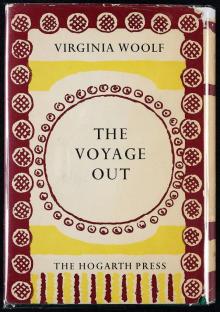 The Voyage Out
The Voyage Out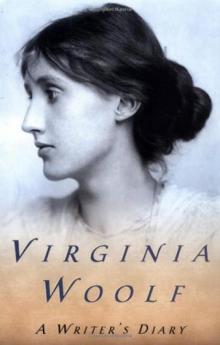 A Writer's Diary: Being Extracts From the Diary of Virginia Woolf
A Writer's Diary: Being Extracts From the Diary of Virginia Woolf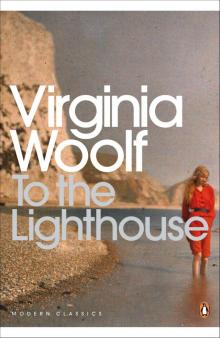 To The Lighthouse
To The Lighthouse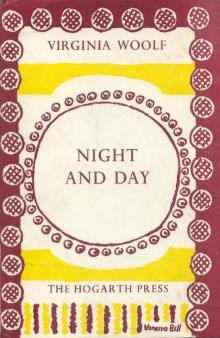 Night and Day
Night and Day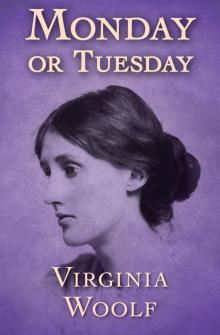 Monday or Tuesday
Monday or Tuesday Complete Works of Virginia Woolf
Complete Works of Virginia Woolf Orlando
Orlando Genius and Ink
Genius and Ink Mrs. Dalloway (Annotated)
Mrs. Dalloway (Annotated) Jacob's Room
Jacob's Room THE RUSSIAN POINT OF VIEW
THE RUSSIAN POINT OF VIEW A Writer's Diary
A Writer's Diary Woolf Short Stories
Woolf Short Stories